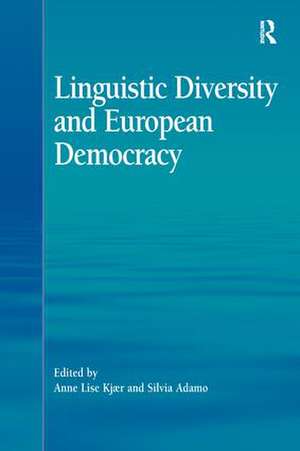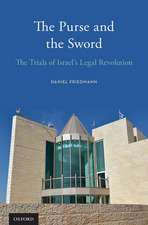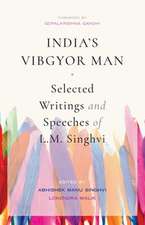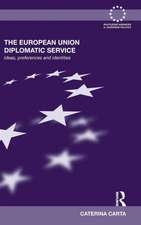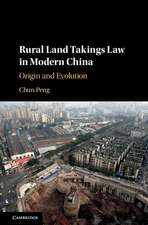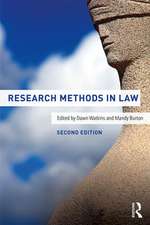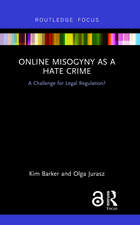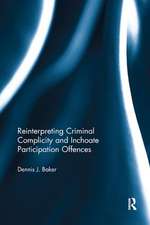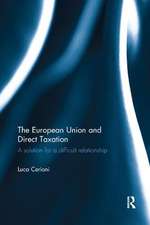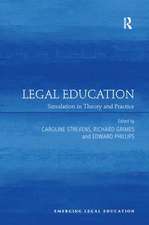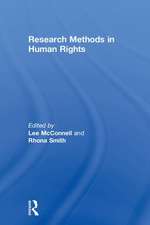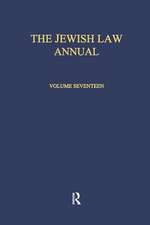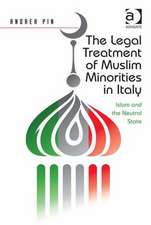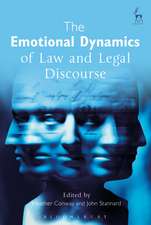Linguistic Diversity and European Democracy
Autor Anne Lise Kjær, Silvia Adamoen Limba Engleză Hardback – 28 feb 2011
| Toate formatele și edițiile | Preț | Express |
|---|---|---|
| Paperback (1) | 469.34 lei 6-8 săpt. | |
| Taylor & Francis – 25 noi 2016 | 469.34 lei 6-8 săpt. | |
| Hardback (1) | 1054.71 lei 6-8 săpt. | |
| Taylor & Francis – 28 feb 2011 | 1054.71 lei 6-8 săpt. |
Preț: 1054.71 lei
Preț vechi: 1286.24 lei
-18% Nou
Puncte Express: 1582
Preț estimativ în valută:
201.82€ • 210.30$ • 167.11£
201.82€ • 210.30$ • 167.11£
Carte tipărită la comandă
Livrare economică 03-17 aprilie
Preluare comenzi: 021 569.72.76
Specificații
ISBN-13: 9781409408604
ISBN-10: 1409408604
Pagini: 242
Ilustrații: includes c. 3 b&w illustrations
Dimensiuni: 156 x 234 x 14 mm
Greutate: 0.45 kg
Ediția:1
Editura: Taylor & Francis
Colecția Routledge
Locul publicării:Oxford, United Kingdom
ISBN-10: 1409408604
Pagini: 242
Ilustrații: includes c. 3 b&w illustrations
Dimensiuni: 156 x 234 x 14 mm
Greutate: 0.45 kg
Ediția:1
Editura: Taylor & Francis
Colecția Routledge
Locul publicării:Oxford, United Kingdom
Notă biografică
Anne Lise Kjær is Associate Professor at the Centre for European Constitutionalization, Faculty of Law, University of Copenhagen and Director of the international research network Reline for interdisciplinary studies in Language and Law. More recent and current research concerns cross-disciplinary studies of legal integration in Europe and combines theories of language, discourse, culture and law. Silvia Adamo is Assistant Professor at the Centre for Studies in Legal Culture, Faculty of Law, University of Copenhagen. Her research interests and publications revolve around migration law and citizenship law, including language requirements for migrants applying for citizenship, European Union law and the interaction between law and political philosophy on multiculturalism.
Recenzii
'European democracy is based on multiple networks and has to find transitional processes between unity and fragmentation. This duality is a powerful tool for social manipulation. This book convincingly highlights the foundations of linguistic diversity and European democracy in a surprising multiplicity of perspectives and settings.' Anne Wagner, Université du Littoral Côte d'Opale, France 'In the EU, linguistic diversity often is the "elephant in the room": everyone is aware of it but no one dares to talk about it. In academia, the role of language(s) in the integration process has long been an important yet under-researched area. This volume is an excellent way of addressing this gap in the literature.' Thomas Christiansen, Maastricht University, The Netherlands 'Linguistic diversity is a symbol of European democracy, but it also complicates political dialogue and the exchange of ideas. This tension is studied in this book where leading jurists and linguists examine, fruitfully and thoroughly, the relationship between language rights and communication needs in Europe, notably within the EU.' Heikki E.S. Mattila, University of Lapland, Finland
Cuprins
Chapter 1 Linguistic Diversity and European Democracy, Anne LiseKjær, SilviaAdamo; Chapter 2 Neither United nor Diverse? The Language Issue and Political Legitimation in the European Union, Peter A.Kraus; Chapter 3 Democracy, Communities of Communication and the European Union, SueWright; Chapter 4 The EU and Languages, RobertPhillipson; Chapter 5 Getting Ready for a New Tower of Babel, MagaliGravier, LitaLundquist; Chapter 6 Multilingual and Multicultural Legal Reasoning, JoxerramonBengoetxea; Chapter 7 The Multilingualism of the European Union Law in the National Courts, MichalBobek; Chapter 8 In Defence of (Limited) Multilingualism, MattiasDerlén; Chapter 9 Language Rights, Bruno deWitte; Chapter 10 The Model Character of Swiss Language Law, DagmarRichter; Chapter 11 Language and Languages in European Ideology, Political Documents and Real Life, J. NormannJørgensen;
Descriere
What role does linguistic diversity play in European democratic and legal processes? Is it an obstacle to deliberative democracy and a hindrance to legal certainty and the possibility of uniform law, or a cultural and economic asset and a prerequisite for the free movement of citizens? This book examines the tensions and contradictions of European language laws and policy from a multi-disciplinary perspective and is a valuable resource for academics and researchers in the areas of European law, legal theory and language.
